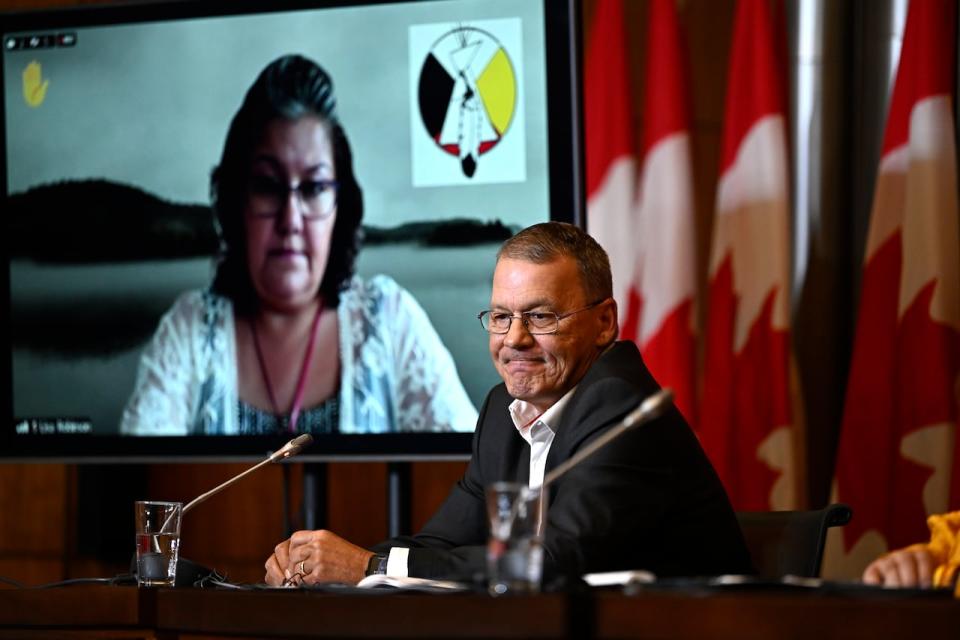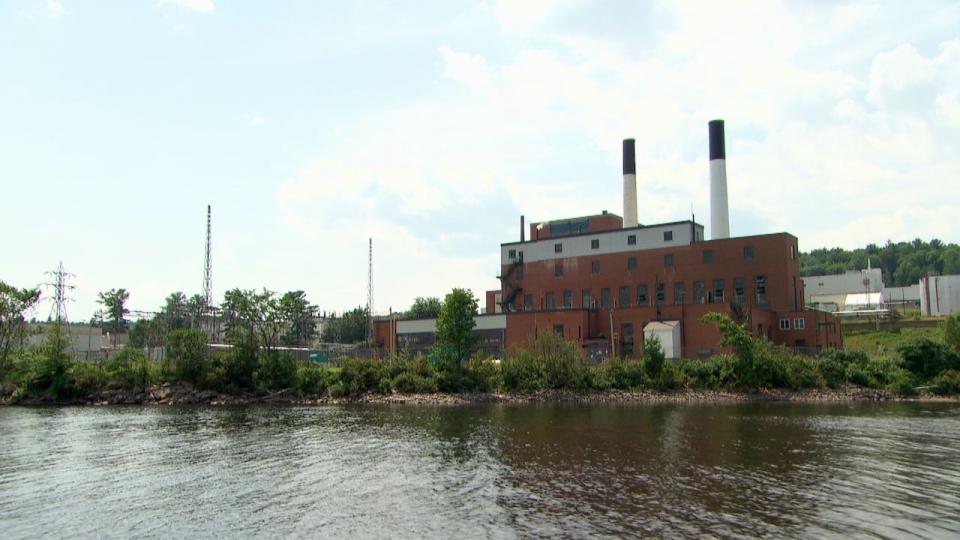Environment minister responds to chief's concerns about toxic sewage spill at Chalk River
The federal environment minister is open to improvements after an Algonquin leader raised concerns about a toxic sewage spill at the Chalk River nuclear research laboratory about 175 kilometres west of Ottawa.
Steven Guilbeault, in a letter obtained by CBC Indigenous, said the incident "may be an opportunity to explore enhancements to the existing environmental occurrence reporting and notification systems to timely inform Indigenous communities" when such incidents happen.
The minister's June 4 letter is addressed to Chief Lance Haymond of Kebaowek First Nation in Quebec, who wrote Guilbeault in April seeking answers about the confirmed regulatory breach that occurred along the Ottawa River in February.
Haymond expressed "grave concern" about a perceived lack of transparency and poor communication around the event. He's approaching the minister's response with qualified optimism.
"Nothing in there was new or gave us any additional confidence that the situation would not arise again," said Haymond.
But the First Nation will invest the time, effort and energy to determine if "this is us chasing our tail" or if Guilbeault is serious about improving communications.
"We always have to be optimistic that it can't get any worse," Haymond said.
"Any improvement is better than the situation we currently have now."

Canadian Nuclear Laboratories (CNL) is a private sector consortium contracted to manage federal nuclear sites and facilities.
The organization failed what's known as an acute lethality test at the Chalk River campus's sanitary sewage treatment facility on Feb. 21, Guilbeault's letter confirmed.
This means the effluent, or treated wastewater the facility discharges into the Ottawa River, was found to be toxic to fish. Discharging acutely toxic effluent into freshwater is considered unauthorized under the Fisheries Act.
CNL reported it to the Ontario Spills Action Centre, while Environment Canada received notice of the failure on March 8, the minister said, adding that an enforcement officer issued a corrective direction on April 23.
"A Fisheries Act direction is a compliance tool that may be issued by enforcement officers when there is an unauthorized deposit of a [harmful] substance into water frequented by fish," Guilbeault wrote.
Facility now passing tests
Two days following Guilbeault's letter, the nuclear organization reported the sewage plant was back in compliance with regulations, having passed three consecutive toxicity tests on effluent samples collected between April and May.
"Work to identify the root cause of the disruption remains underway, and CNL is actively implementing an action plan to ensure that there is not a repeat occurrence," the organization said in a bulletin.
CNL reiterated the toxicity wasn't tied to radioactive contamination. The plan to avoid repeat problems includes increased oversight, improved practices for the use of sanitary drain systems, and infrastructure improvements.
Earlier this year, the country's nuclear regulator approved CNL's plan to build a radioactive waste landfill at the Chalk River site, something Kebaowek and local groups have launched court challenges to stop.
Haymond remains entirely unhappy with CNL's response. He feels Guilbeault and CNL are sending mixed signals.
CNL's bulletin said "at no point did the effluent pose a threat to the environment or the public;" Guilbeault's letter confirmed the sewage was sufficiently toxic to trigger regulatory action.
"I believe that when something is labelled toxic, then it absolutely is harmful to the environment," said Haymond.
"To what level and to what scope? Again, we don't know because it's taking CNL's word that, even though it was toxic, it didn't have an environmental impact."
Guilbeault's letter didn't answer these questions directly. Instead it pointed Haymond to a webpage containing data reported by federally regulated wastewater operators.

A review of this data confirms the final discharge point of the CNL-operated sewage system at Chalk River is the Ottawa River, with an estimated average of 683 cubic metres deposited daily.
CNL's reported results on past acute lethality test results reveal the nuclear organization failed three consecutive toxicity tests between March and April 2022.
Haymond was surprised to learn this spring's failure was not the first one in recent years.
"We weren't aware, don't remember receiving any notice," he said.
Ottawa Riverkeeper, a non-profit organization that advocates to protect the watershed, has recently echoed Haymond's concerns.
"What is perhaps most concerning is the lack of transparency demonstrated during this entire episode," the group wrote in a May 9 blog post.
Guilbeault's press secretary didn't respond to an interview request from CBC Indigenous. CNL declined an interview request, providing a copy of the bulletin instead.


